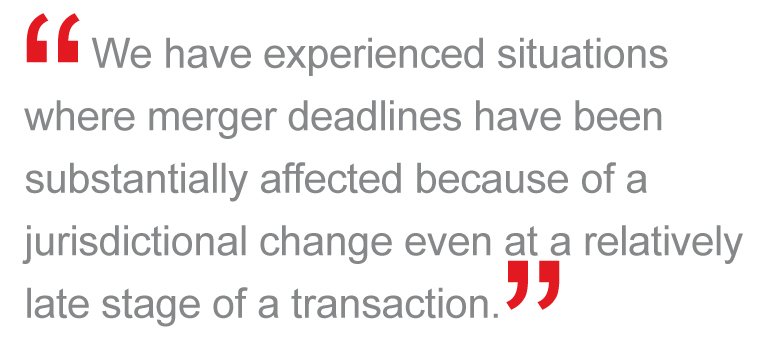Lusophone Africa Special Report 2013: Being in it to win it
Recent years have seen international investor interest and confidence make a dramatic swing in favour of Africa, with Portuguese law firms leading the way in the Lusophone countries.
But as their clients expand further into Africa, establishing a presence across the region has become crucial for the year ahead.
Between 2000-2010, Africa was the fastest-growing region in the world. The average economic growth rate for sub-Saharan countries was over five percent, with five countries experiencing closer to 10 percent and included in the top 20 fastest-growing economies in the world. Portuguese law firms have played a significant part in this transformation in Lusophone Africa – Angola, Cape Verde, Mozambique and São Tomé and Príncipe – with a select number of the best and longest-established firms leveraging their expertise. And they are now slowly moving into Francophone Africa. The message from lawyers is clear: no leading firm can afford to ignore these markets and it is imperative to have a presence on the ground.
A change in market
Once considered attractive primarily for its abundant natural resources, international investor interest towards Africa increasingly focuses on telecoms, consumer goods, retail and banking, alongside the oil, gas and mining sectors, say lawyers.
And Africa is urbanising at an incomparable rate, which, when combined with the impact of changing demographics, means that a much greater investor focus is being placed on the domestic and consumer markets – the boom in consumption, reflecting the strength of their economies. But only five percent of Africans currently operate a bank account, while the working population of 500 million is estimated to rise to 1.1 billion by 2040, higher than both India and China.
“Investment in Angola is still dominated by the oil sector, and the economy remains susceptible to global price shocks,” says Pedro Metello de Nápoles, Head of the Angola practice at PLMJ. “But we are seeing new types of investors and areas of focus, in the retail and consumer markets, as well as construction and agriculture. Much still has to be imported but there is a clear policy drive towards greater diversification of the economy as a whole.”
And while the natural resources sector still dominate, many more Portuguese and international investors are awakening to the potential of the African economy as a whole, says João Caiado Guerreiro, Managing Partner at Caiado Guerreiro. “Africa may present a much more disparate market than somewhere like China, for example, but from the European perspective it is also much closer.”
Developing rapidly is oil-rich Angola, where the first liquefied natural gas plant, the US$9bn Angola LNG, was completed last year. Constructed by Bechtel, it is a joint venture between Chevron, state-owned energy company Sonangol, BP, Eni and Total. Plans are underway for a second plant. The Angolan Government has also agreed a $1.5bn credit line with China Development Bank, which is now underwriting construction, agriculture and transport projects – including $400m for the Mocamedes Railway.
It is larger scale investment that the country is encouraging and there are also Government indications that they will soon launch a Luanda Stock Exchange, as greater confidence returns to the international capital markets. The securities regulatory framework is already in place, say lawyers, building on changes to investment and tax rules introduced in 2010. These have raised minimum foreign investment levels to US$1m in an effort to discourage more opportunistic investors and give more opportunity to local Angolan entrepreneurs.
“The Government is looking to attract larger and more long-term multinational investment,” says João Robles, who leads the Angola practice at F Castelo Branco, operating in Luanda through EVC Advogados. “The $1m threshold is clearly proving to be a barrier for some foreign investors, primarily to services companies wishing to enter the Angolan market but that cannot justify that scale of investment.”
But Africa is no panacea to investors’ domestic troubles and Angola remains a challenging place in which to do business, cautions Robles. “In several cases, companies’ investments are the result of an understandable choice to invest in an emerging economy as opposed to a recessionary European market. But we have increasingly witnessed instances where such investments are seen as a helping hand or the last resort for ailing companies. In such cases, the results are generally negative.”
Luis Gagliardini Graça, a Partner and member of the Africa Team at Morais Leitão, Galvão Teles, Soares da Silva & Associados (MLGTS), agrees that any investment in Angola requires considerable patience and deep pockets. Fundamental also is the quality of people deployed on the ground. “Whoever intends to invest in Angola or Mozambique will inevitably be more successful if this is developed on a permanent long-term basis, and there is an extremely rigorous selection of human resources.” Those involved in these types of projects should be the best candidates that businesses have to offer.
High energy
On the other side of the continent, Mozambique is also seeing a dramatic rise in investor interest. Sectors, including banking, insurance, telecoms and construction, offer growing opportunities, but are nonetheless dwarfed by the potential of energy and infrastructure, say lawyers in the capital Maputo.
Mozambique is already a major coal and coke producer, with considerable investments made by Vale, Rio Tinto and Riverdale. But recent offshore gas finds hold the potential to turn it into one of the world’s largest LNG producers.
“Mozambique is eager to receive investments and we now see clients from many different nationalities assessing opportunities,” says Rodrigo Ferreira Rocha Partner with Ferreira Rocha Advogados and Co-Head of the Mozambican Desk at Abreu Advogados. “And according to official figures, Portugal remains one of the biggest investors, but alongside China, Brazil, Australia and neighbouring South Africa.”
The recent acquisition by China National Petroleum Corp of a 20 percent share for $4.2bn in one of ENI’s Mozambique offshore exploration Blocks demonstrates the scale of the opportunities on offer, say lawyers. But significant legal, political and geographic barriers need to be overcome before a single gas dollar is earned.
“Financing is becoming available for some of the very large infrastructure projects on the table, but a recurring challenge is a lack of technical expertise on the ground and a sufficiently clear legal framework to facilitate such investments,” says Claudia Santos Cruz, who leads the Mozambique team at AVM Advogados. “Angola has enacted project-specific legislation for strategic investments, but this is not something we are yet seeing in Mozambique.” The challenges lawyers are facing, therefore, is to make things happen regardless of the obstacles.
On the ground
Angola and Mozambique are, however, challenging for Portugal’s law firms. Only nationals may qualify to the local Bars and foreign firms have to operate in association with local firms – ensuring the loyalty of which can present recurring obstacles.
“The key challenge in any new market is to align the firm’s strategic goals with the realities on the ground,” says Nuno Castelão, Head of International Relations at Vieira de Almeida (VdA), operating in both countries through its VdAtlas international platform. “From a Portuguese perspective, and given the significance of Angola and increasingly Mozambique to our own domestic and increasingly international clients, as a leading firm these are no longer markets that we cannot be present in.”
For the longest-established firms, this is less of an issue than the new wave of entrants that have arrived since the onset of Portugal’s economic downturn. Alongside those firms already established in Luanda, such as AVM Advogados, F Castelo Branco and Miranda, among others, recent years have seen new entrants or firms forced to reconfigure their local ties, including Abreu Advogados, Cuatrecasas Gonçalves Pereira, PLMJ, MLGTS and VdA, among others. Firms such as ABBC, Caiado Guerreiro and Sérvulo are all active but without a formal tie-up.
Angola may remain a work in progress for many firms, but more are also now placing a growing emphasis on Mozambique. Among others, AVM Advogados, Cuatrecasas and Miranda have established there, while SRS Advogados has a prominent local tie-up, as does Abreu Advogados with Ferreira Rocha & Associados. PLMJ has restructured its Maputo operation – GLM-Gabinete Legal Moçambique – while also recently arrived are F Castelo Branco and the MLGTS Legal Circle, with more changes expected in coming months, say lawyers.
Extending their reach
For a unique few, Lusophone Africa is now serving as a stepping stone to other parts of the continent. South Africa may be on the radar of some, but Miranda, for example, has already expanded to Spanish-speaking Equatorial Guinea and in the last two years French-speaking Democratic Republic of Congo, Gabon and Republic of Congo.
“The move into Francophone Africa is unique but entirely driven by client need,” explains Matthieu Le Roux, co-ordinator of Miranda’s Francophone practice. “We already serviced many of those clients in Angola, Mozambique or elsewhere, and they are expanding across the continent and continue to ask us to help them.”
Anecdotal evidence from lawyers confirms the wider analysis of a continent capitalising on globalisation, changing demographics, increased urbanisation and rising domestic consumer demand.
Following their clients is paramount, say lawyers, and they can no longer afford to just rely on delivering services in just Angola and Mozambique. Rising inbound African investment is increasing the need for legal services across the region and law firms are continuing their expansion into the other Lusophone countries as well as taking their first steps into Francophone Africa.
The African markets have now become synonymous with a Portuguese law firm presence, but, say lawyers, others are beginning to follow suit. Expanding as their clients are doing, is crucial to ensure not to be left behind. The message, say lawyers, is clear: you’ve got to be in it to win it.
Estos últimos años hemos sido testigos de un crecimiento dramático del interés de los inversores internacionales en África, y los despachos de abogados portugueses han liderado el camino de esa inversión, en particular en países de origen jurisdiccional luso. A medida que los clientes expanden su negocio y su presencia en otros países del continente africano, los despachos abren vínculos de apoyo en dichos países como herramienta esencial de acompañamiento a sus clientes.












